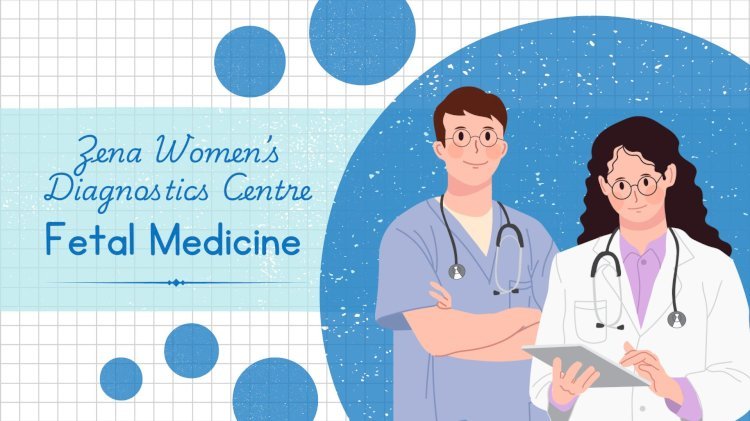High-Risk Pregnancies: The Role of Maternal-Fetal Medicine

Pregnancy is the most prominent part of motherhood; it is often a time of joy and anticipation, of course. These 9 months of the gestation period vary from one expectant mother to another. In some cases, it comes with heightened risks and challenges and such cases are often termed as high-risk pregnancies. Thus, such expectant mothers require special medical care, ensuring the best possible outcomes for both mother and baby. This is where maternal-fetal medicine plays a huge role. Therefore, in this blog we will explore the role of the best fetal medicine centre in Delhi in managing high-risk and complex pregnancies. Stay tuned!
Understanding High-Risk Pregnancy?
Before we dive into how maternal-fetal medicine manages high-risk pregnancy, we first need to understand what high-risk pregnancy means. Well, a high-risk pregnancy is typically referred to as a condition where the health and life of both mother and baby are at greater risk than in a normal pregnancy. This usually includes medical, genetic, or obstetric complications.
Here are some of the common factors contributing to high-risk pregnancies mentioned below:
- Maternal Age: If the expectant mother is under 17 or over the age of 35, then it could be a case of high-risk pregnancy.
- Pre-existing Health Conditions: Pre-existing health conditions such as diabetes, high blood pressure, thyroid disorders, autoimmune diseases, and kidney or heart conditions often contribute to high-risk pregnancy.
- Pregnancy-Related Issues: Apart from pre-existing conditions, there are some conditions that are usually developed during pregnancy, making the entire 9 months filled with risks and complications. Examples of such pregnancy-related issues are preeclampsia, gestational diabetes, placenta previa, multiple gestation (twins, triplets), preterm labour, etc.
- Lifestyle Factors: Lifestyle factors such as smoking, alcohol use, or substance abuse can often result in high-risk pregnancies.
Understanding the role of Maternal-fetal Medicine in High-Risk Pregnancy Care
Here’s how maternal-fetal medicine manages high-risk pregnancy, as mentioned below:
- Early Identification and Risk Assessment:
- Comprehensive health history analysis
- Genetic counseling
- Ultrasounds and fetal anomaly scans
- Non-invasive prenatal testing (NIPT)
- Blood and urine tests
- Advanced Prenatal Screenings and Diagnostics:
- Level II Ultrasound
- Fetal Echocardiography
- Amniocentesis or Chorionic Villus Sampling (CVS)
- MRI Scans
- Managing Maternal Health Conditions:
- Medication management (safe for pregnancy)
- Diet and lifestyle interventions
- Monitoring vital signs and fetal growth
- Regular lab assessments
- Fetal Monitoring and Management:
- Monitoring fetal growth and amniotic fluid levels
- Assessing placental function
- Intrauterine transfusions or fetal procedures (if needed)
- Planning early interventions or delivery if risk increases
Prioritizing mother and baby Health with Maternal-fetal Medicine Support
It's essential to remember that most high-risk pregnancies might result in healthy births, especially with expert care. The role of maternal-fetal medicine is important in ensuring every complication is anticipated, addressed, and managed through a combination of science, technology, and compassionate care. If you are at risk of facing a high-risk pregnancy, then visit Zena Diagnostic Centre for Women in Greater Kailash and get personalised, experienced and expert care. For more information, book an appointment at Zena Healthcare today!
What's Your Reaction?















